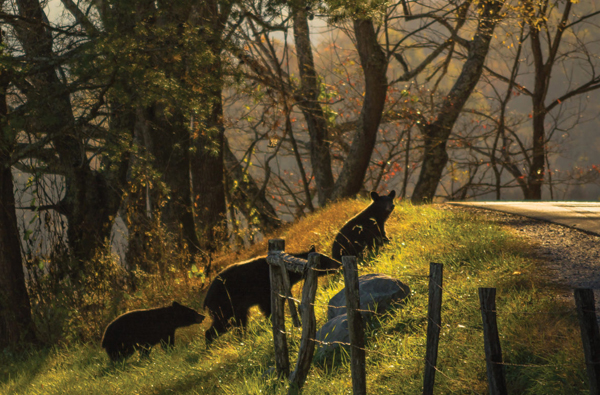
Everyone knows that some animals go into hibernation over the winter months, but what does that really mean? As I write this, the grass is defrosting in my front yard and there is a log crackling on the fire. We humans cope with the cold of winter by adding extra layers of clothing, drinking hot beverages and staying close to the fire. Animals? They have different means of coping with winter. Some leave and travel to warmer climates while others have the means to stick it out through the winter foraging and hunting, and some hibernate.
Hibernation is a way for many creatures to survive cold dark winters without having to forage for food or migrate to somewhere warmer. Instead they turn down their metabolisms to save energy. Hibernation is for those who stick around. In the summer and fall, mammals feed heavily, building their fat reserves to see them through the winter. Depending on the species, hibernation can vary from long deep unconsciousness to light spells of inactivity. The hibernator’s metabolism slows and its temperature plunges. Breathing slows; a bat’s heart rate can fall from 400 to 11 beats per minute. Some cold-blooded creatures such as frogs produce natural antifreeze to survive being frozen solid. In Tennessee, bears, groundhogs and bats are some examples of creatures that hibernate, while deer and coyote are still active all winter long, hunting and foraging where they can.
When I think of hibernation, the image that comes to mind is a cozy creature taking a long nap protected from the harsh realities of winter. While some of that image is based in truth, the reality is that hibernation is extremely risky for the animal. If a predator finds a dormant animal, they have no means of protecting themselves and will lose. Even if the animals wake up, they will not have the energy to win the battle.
Some insects, such as butterflies, ladybirds and bees, over-winter in the adult state. Adult insects are liable to be roused on unseasonably sunny days. This won’t necessarily harm the insect directly, but the energy expended in flying about and looking for a new hibernation site might cause stress later on as they run out of fat reserves and die before the spring comes.
Due to climate change and fluctuating temperatures fewer and fewer animals are surviving hibernation. The sporadic warmer days in the early spring cause hibernators to emerge too early. They exit hibernation while their fat reserves are seriously depleted and before there is enough food to sustain them in the environment, leading to death. A study on 14 species of North American hibernators showed that, for every 1ºC rise in annual temperature, hibernation was on average 8.6 days shorter and survival was hit, too—down by 5.1% for every degree of warming.
Winter can be harsh for many of us and we all enjoy it when someone crochets us a new blanket for our bed, or makes us a hot beverage. Let’s do the same for the creatures. Consider leaving bird seed out for the birds, or breaking ice so the animals who do not hibernate have access to water and food. As far as the hibernating animals in your area, leave a part of your garden wild so they have safe places to nest. If you are planning to burn a brush pile that has been sitting for a while, check for nests that could be in the ground under the branches.
[Photo: Great Smoky Mountains National Park courtesy of Adam Ozment / UTIA]












